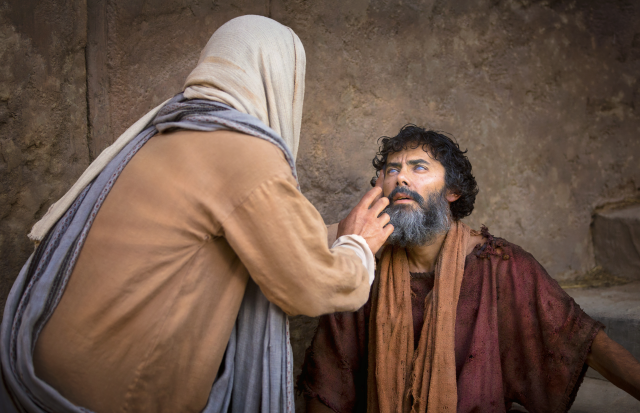During this pandemic, my local church holds these priesthood Zoom meetings twice a month. Every now and then, the lesson makes it here to these weekly spiritual thoughts, and evidently today is one of those days.
Around A.D. 60, the Jewish people in Jerusalem were not happy. As contention increased, they rose up -- first in smaller rebellions, and then in bigger ones. As a result, the Romans came in en force and put a rest to the rebellion, destroying the temple, and killing more than a million Jews, and capturing 100,000.
However, according to Josephus' account, there is no mention of Christians perishing in these attacks. How did they escape? Readers of the New Testament may already know the answer -- they were warned by Jesus. He spelled out the signs, and the Christians saw them and knew what to do to avoid capture and death.
This article explores the whole idea of Jesus preparing his people for the upcoming Roman siege:
I strongly recommend reading that article, and then come back here, because think on this: If Jesus felt it was important to warn the Christians for an event that would occur more than 30 years later, then why is it that the leaders of my church felt it necessary to give us the most political "talking to" I've ever seen my whole life at a General Conference?
For those who don't know my church, we have worldwide conferences twice a year -- usually 5 sessions of two hours each over one weekend. I listened to 4 of those sessions three weeks ago, and practically every talk was about current events ... riots, plagues, contention, racism, and so on. That was eight hours of warning and guidance on how to survive times like these.
Further, in our bi-monthly priesthood meetings, we go over talks in the most recent conference ... meaning we're going to be discussing these topics for another 5 months before the next conference in April begins.
It's funny ... my wife asked how I felt to have the same lesson two times in a row, and I answered, "We got a whole lot more coming!"
The last meeting two weeks ago was on "Love Your Enemies" by Dallin H. Oaks. This week, we took on the same talk, but explored different aspects ... how to avoid contention, and how to recognize warnings from the Lord.
Our instructor took on some pretty heavy topics, and did a good job discussing it while at the same time keeping us from delving into divisive political talk. I don't think anyone said "Trump" or "Biden" at all, and it was pretty nice.
But for today, I'm focusing just on the warning aspect. Because, I think it ominous that our leaders (who I believe to be inspired by the Lord), showed enough concern to give us some pretty scary advice.
Elder Oaks' talk seems more geared toward avoiding what may come next. Even before Trump became president, I had been complaining about how much we were divided, and we were increasingly becoming so. It only seems to get worse and worse every year that progresses -- so much so that I no longer refuse to take a side -- I am now "unaffiliated." And this year has been particularly bad. People are becoming increasingly more polarized, and much less willing to have good open discussions with each other.
There is no more a desire to work things out, but rather to work to remove opponents from power, to lob insults and disrespect, and to say their opponents are completely wrong and the sole cause of today's ills.
There is only one outcome to such a trend. Just as the Jews let contentions build up, and riled up the Romans, I think on our current path there is no way for us to avoid the strangest civil war we've ever seen and it could get ugly. Millions of deaths? I hope not.
If members of the church were to wake up and start to work toward diffusing this growing toxic situation, we might be able to avoid this internal war, and get back to working together as strong American citizens. But maybe it won't be enough. There were several talks on how to survive in situations beyond your control, and that scares me. Perhaps we're already doomed.
But yet the message was clear from many of the talks in aggregate: if you're prepared, you will fare well. Just as Jesus provided instruction to the early Christians to avoid and/or survive the Roman siege, the Lord may be giving us instruction now on how to avoid and/or survive the upcoming difficult times.
We may not be able to stop what's coming, but we can at least be prepared.



